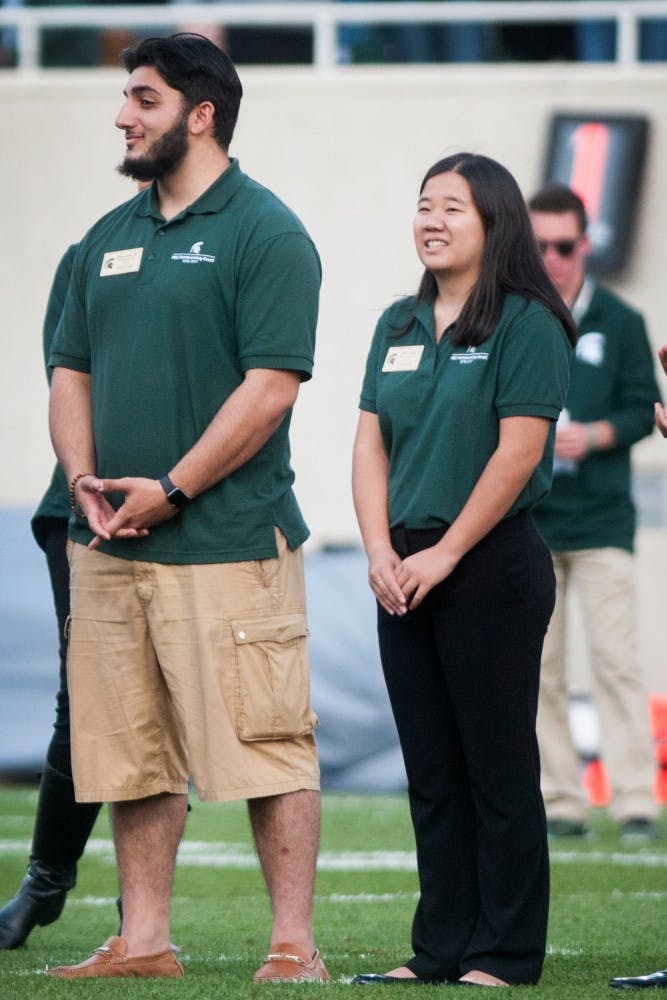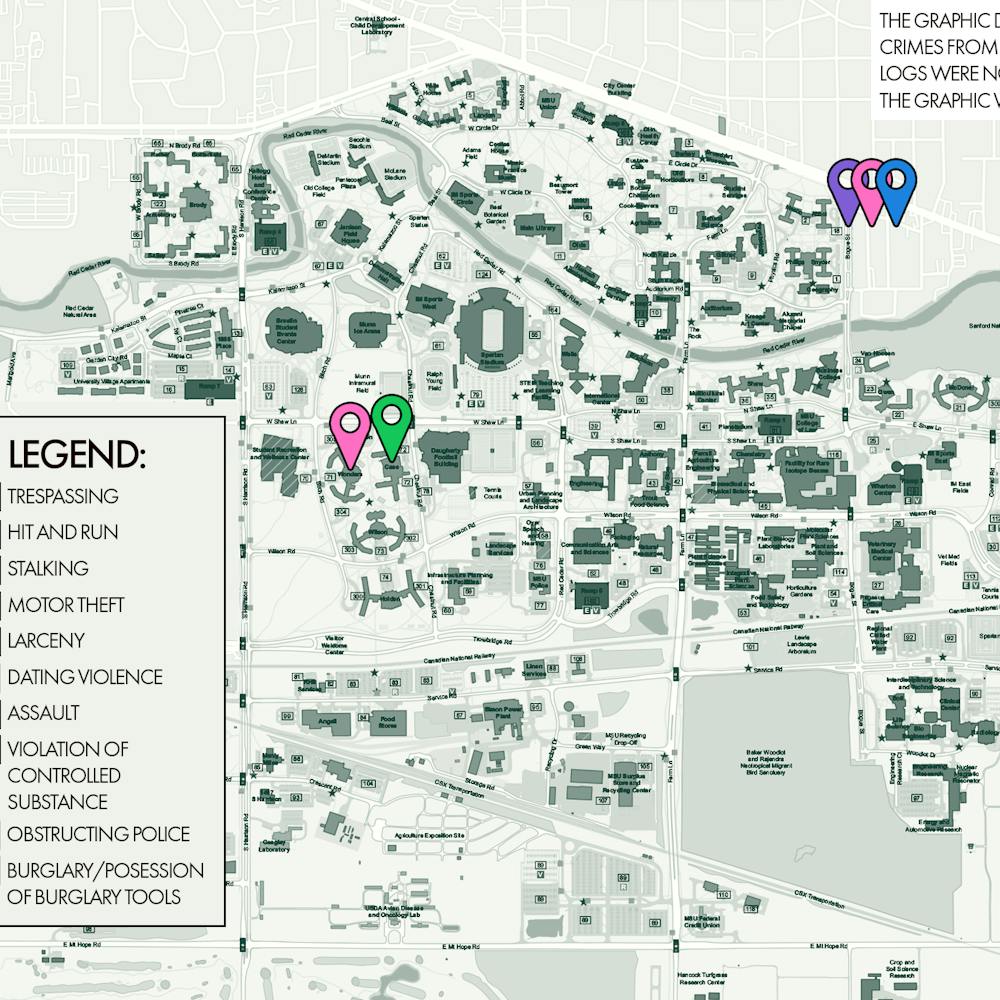From being on MSU’s Homecoming Court to living in Hong Kong as a child, psychology senior Ellen Hicks has always stood out from her peers.
Hicks was adopted from China as an infant and stood out from her adoptive family, something she hoped to change as a child has become a positive influence on her life.
Hicks said she always wondered why her international friends weren’t put up for adoption like her.
Her foster parents told her why she was put up for adoption at an early age.
“It comes to the conclusion of these girls that come here, they come from the city,” Hicks said. “Me and Kirsten and other adoptees, we are usually coming from the countryside.”
This is because of farmers during the one-child policy — which ended on Jan. 1 — depended on labor to provide for the family, associate professor of anthropology Andrea Louie said. Louie’s research focuses on Chinese adoption and Chinese adoptees.
“In the countryside, you’re a farmer depending on the labor of your family, especially your sons, to make a living, you really need to have a son,” Louie said.
This led to more girls being put up for adoption from the countryside rather than urban areas, Hicks said.
“Because of China’s one-child-policy, they want males because that’s their way of social security,” Hicks said. “The males will grow up and take care of their parents. ... When they have girls, they will marry into the guy’s side of the family.”
Louie said the one-child-policy affected the rural population of China more than the urban population.
This hasn’t stopped Hicks from learning about her Chinese descent and celebrating Chinese culture and holidays, such as Chinese New Year, she said.
“What’s really distinguished, in a way, is (my parents) trying to integrate Chinese culture and to introduce us from where we come from into the home,” Hicks said.
Hicks said both she and her sister were influenced by Chinese culture.
Hicks’ foster parents adopted her sister from China when Hicks was three-years-old.
Hicks’ parents allowed her and her sister to embrace their Chinese heritage, she said, which came in handy when they moved to Hong Kong when Hicks was in fifth grade.
“They really wanted to show me and my sister where we come from,” Hicks said. “It’s one thing to learn about China in the books, it’s another thing to actually live in China.”
Hicks also said she and her sister were able to go back to their orphanages, and were able to see where they came from.
“(It) was super eye-opening,” Hicks said.
Packaging sophomore Kirsten West was also adopted from China.
West, however, hasn’t been able to revisit her home country of China.
She’s the youngest in her family and has two older siblings who are biological children to her foster parents.
“We didn’t really focus on the fact that I was Chinese, it was more like I was just part of the family,” West said.
Other people would notice the discrepancy between West and the rest of her family, West said, but her family stood by her and told her they were one big family.
The same happened with Hicks and her family, as when she was younger, Hicks’ peers were confused as to why she was Chinese and her parents were Caucasian.
“I would tell her (my mom) that I wished that I had white skin, green eyes and blonde hair,” Hicks said. “She was like, ‘No ... you are you and God made you this way.’”
Hicks said these thoughts are now gone, and she loves the way she looks.
All adoptions in China are closed adoptions, meaning there is no interaction of any kind between birth parents and prospective adoptive families, according to americanpregnancy.org.
“It would be nice in the way that I could get medical records,” Hicks said. “I would also want to find my birth family ... to see if I have biological brothers and sisters, or even a twin.”
Not knowing their biological parents can be tough for some adoptees. When it comes to growing up as an adopted child, nobody can understand, Hicks said.
“Only those who have been in our shoes really understand how we feel,” Hicks said. “I’m never going to be of one culture, there’s always going to be two cultures.”
Although she is part of two cultures, Hicks said just because she was born in China doesn’t mean she isn’t American.
“We (grew) up in America and are just as American as anybody else,” Hicks said.
Hicks said being adopted has influenced her life and career at MSU.
“Whenever I meet people who are adopted (domestically or internationally), I get very excited because we share an experience that most people wouldn’t understand,” Hicks said.
West and Hicks created a club at MSU called Somewhere in Between, which is for domestic and international adoptees and for anyone who has been impacted by adoption, Hicks said.
“We wanted to create a group where others could relate and have (an) adoption community,” Hicks said via email.
Hicks said one of the goals of the club is to get a scholarship for those students who are adopted, since there are currently no general adoption scholarships offered.
“There are scholarships that are very specific, e.g. those who are adopted at age 16 and scholarships for foster children, but there are no scholarships available for adoptees,” Hicks said via email.







